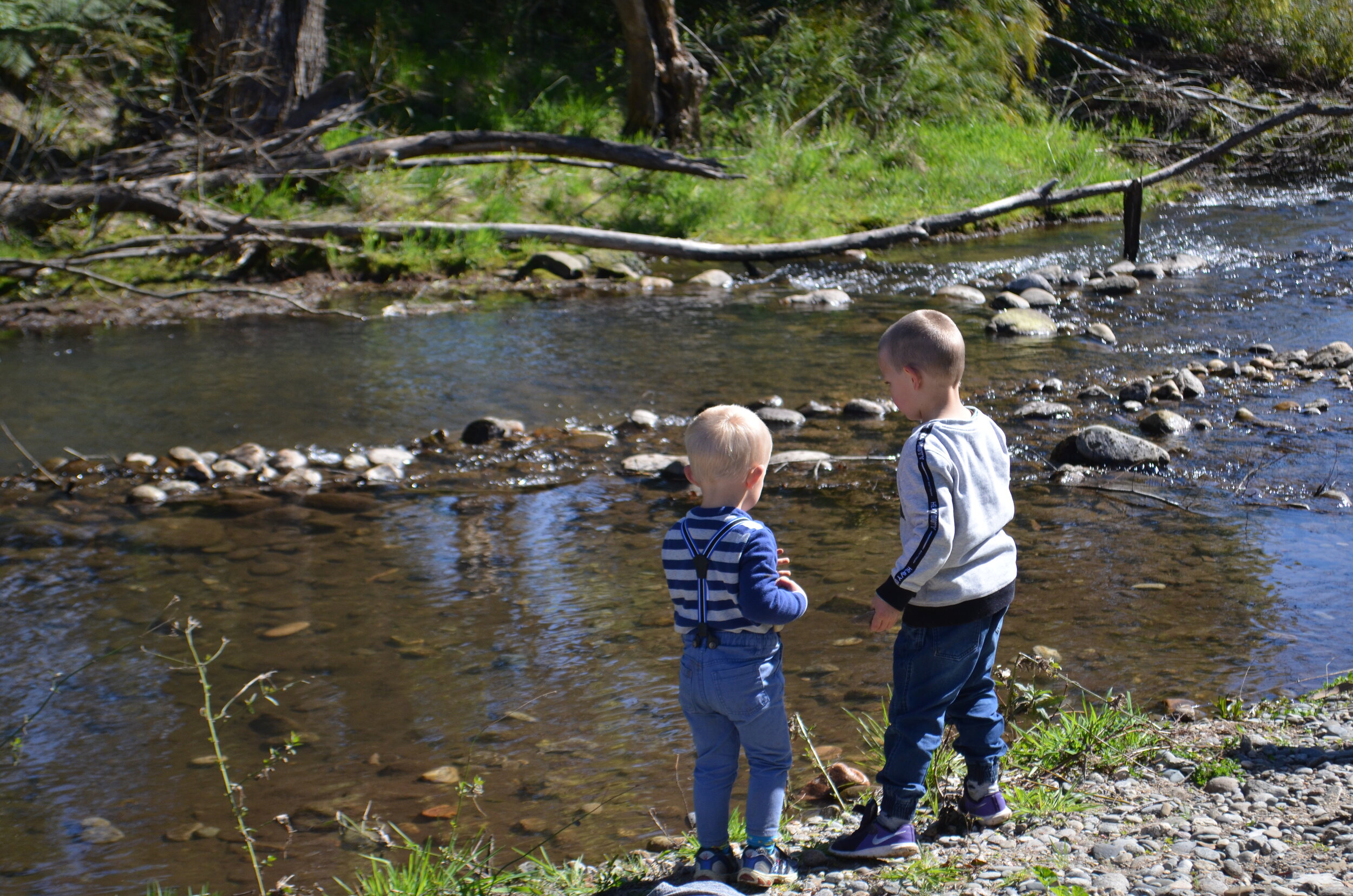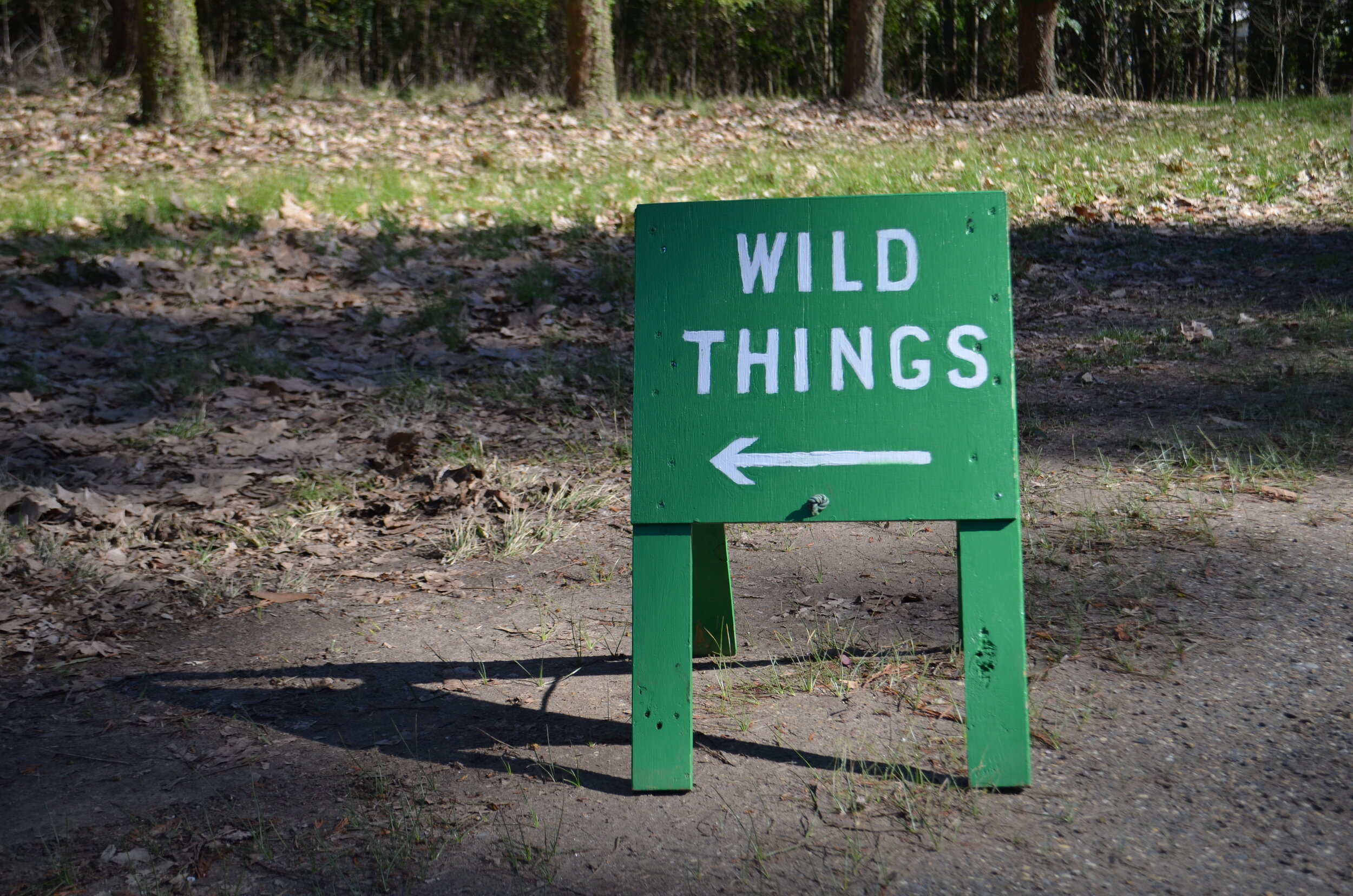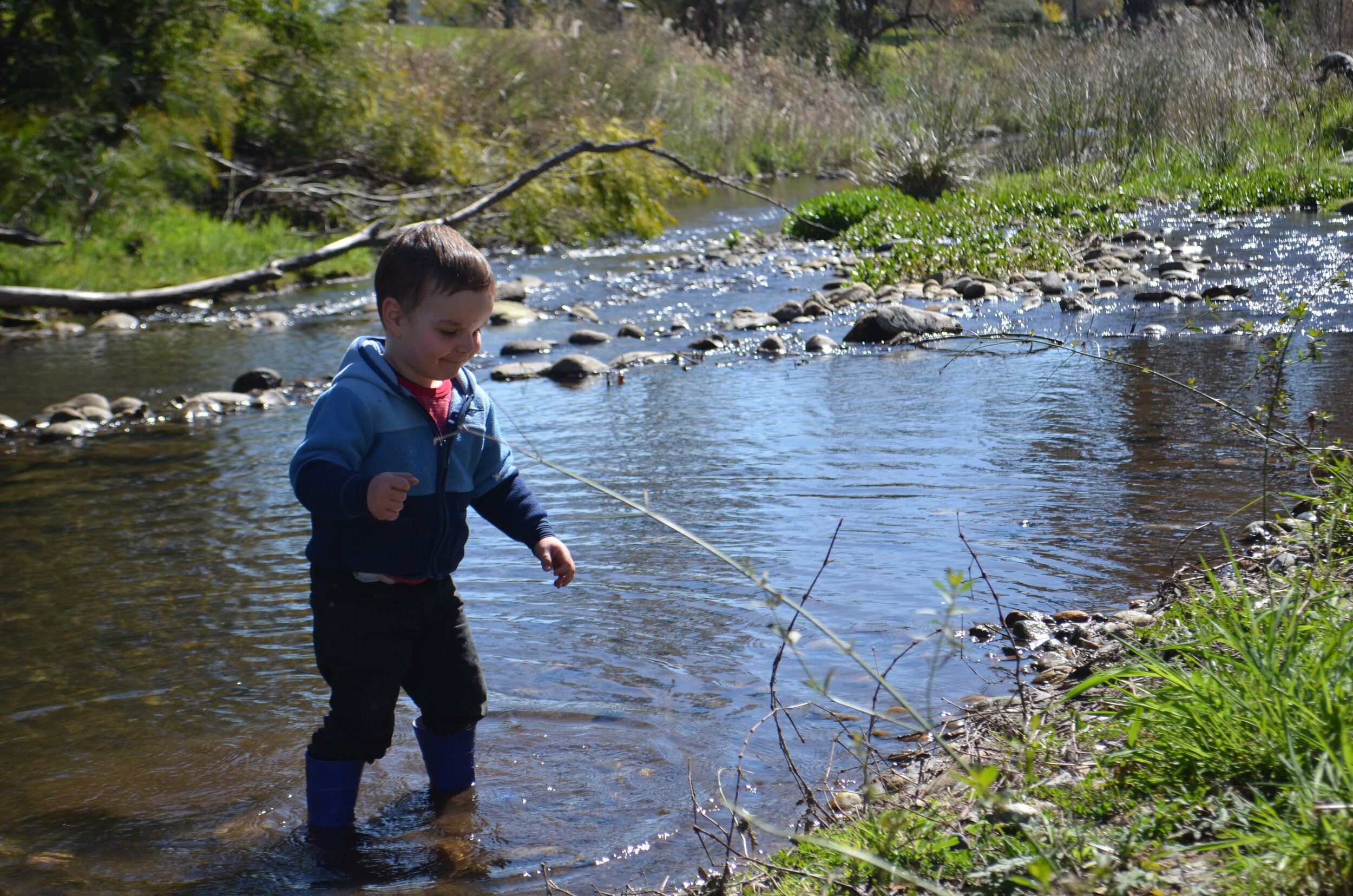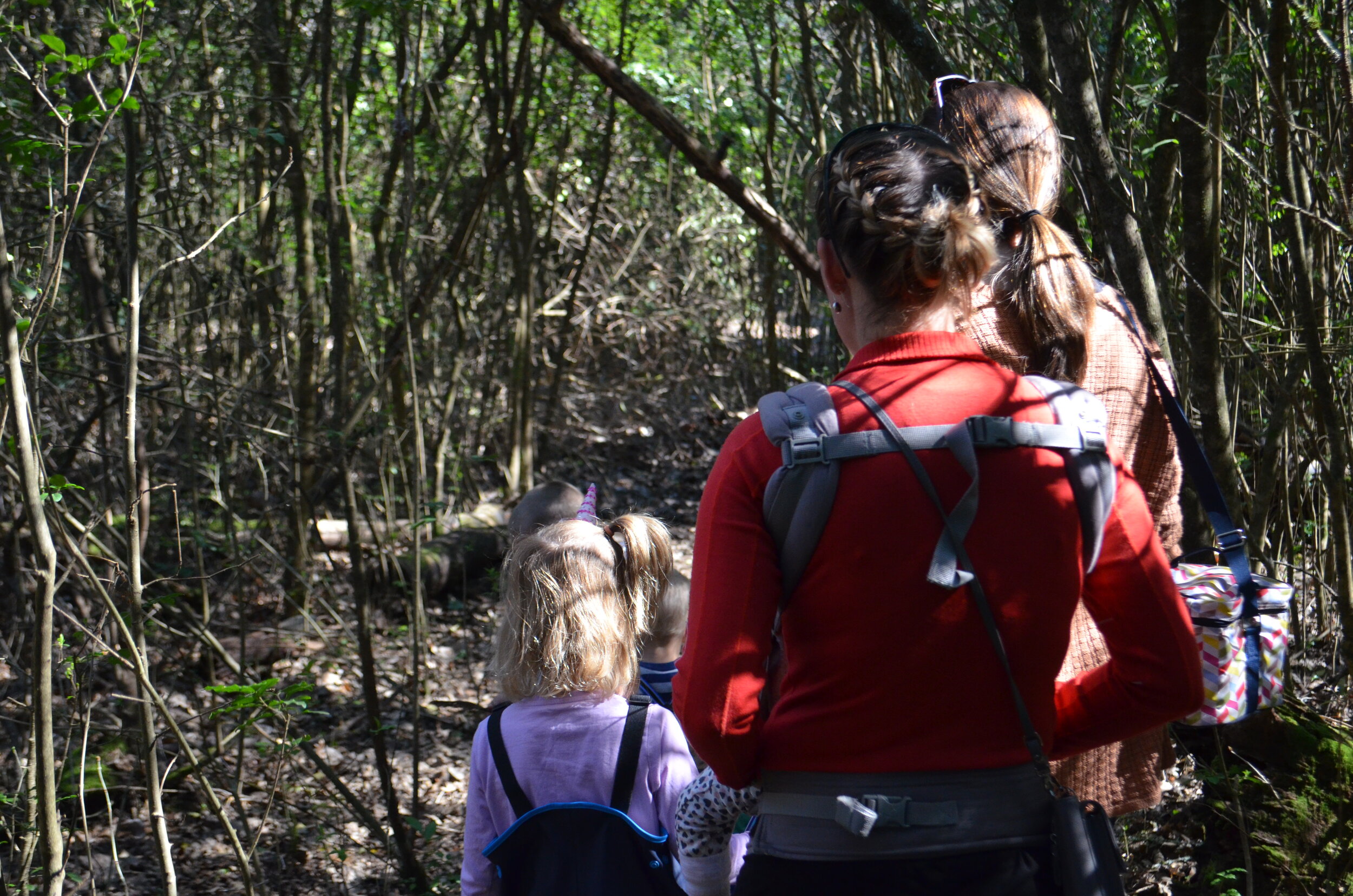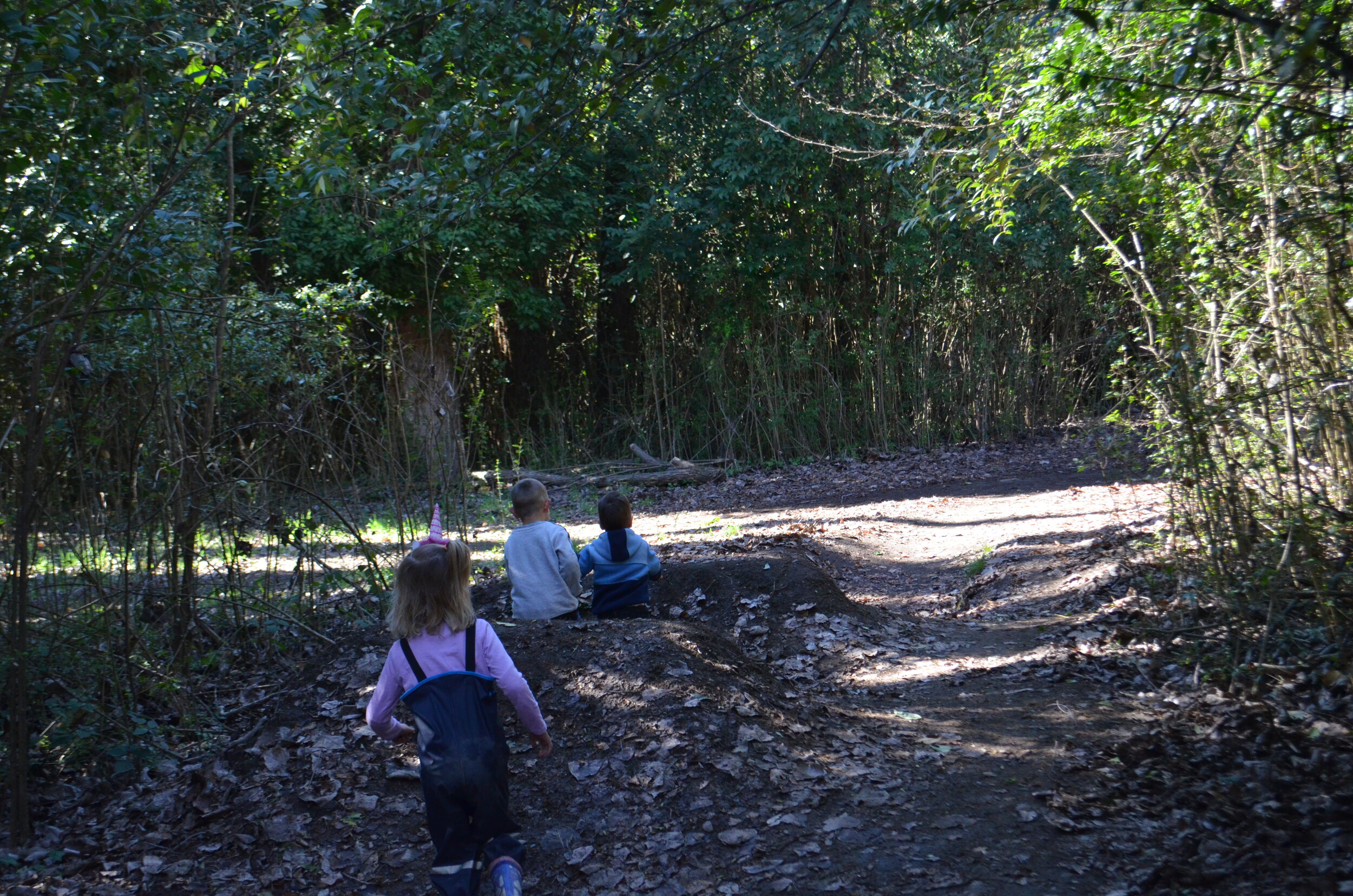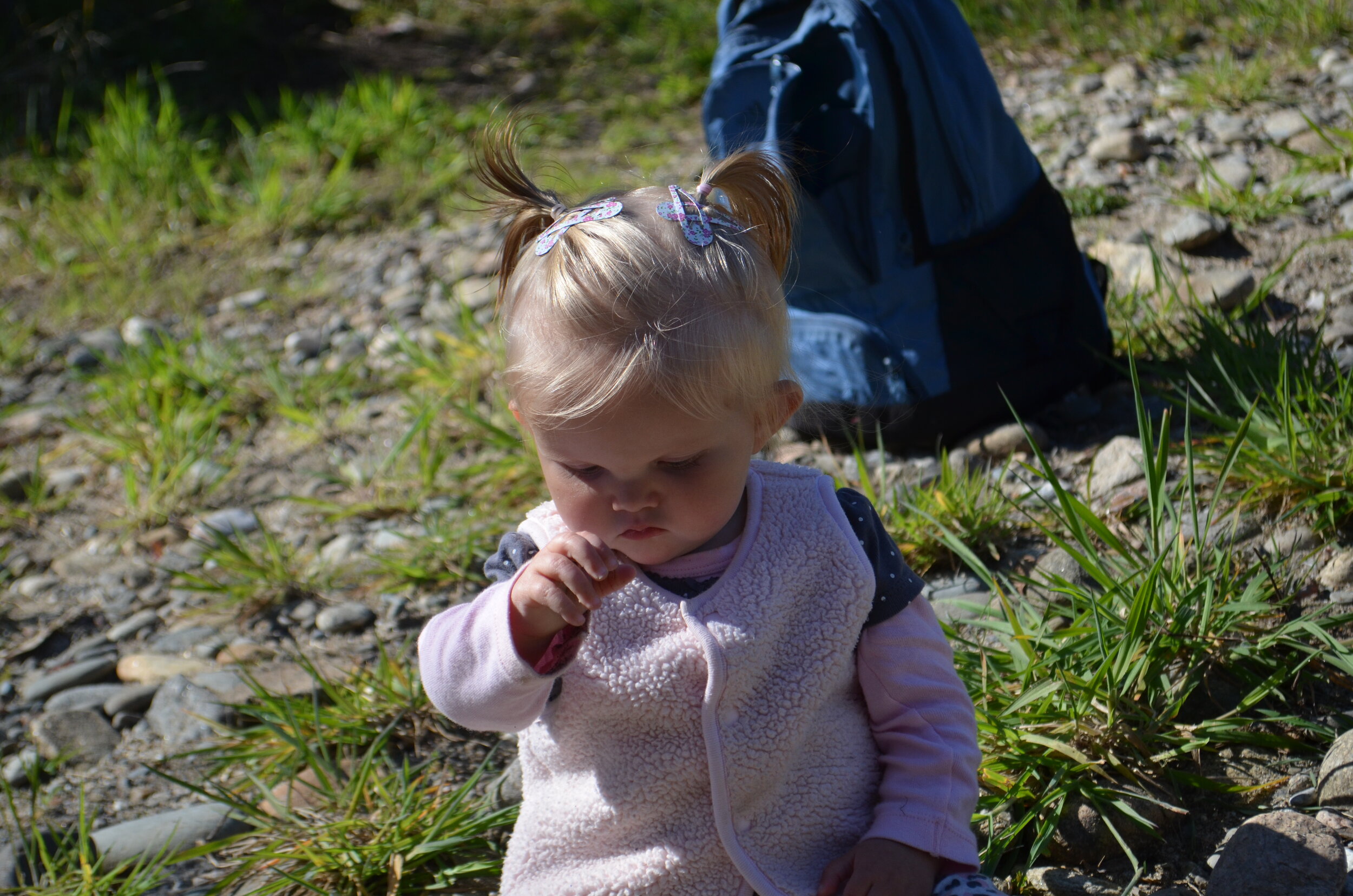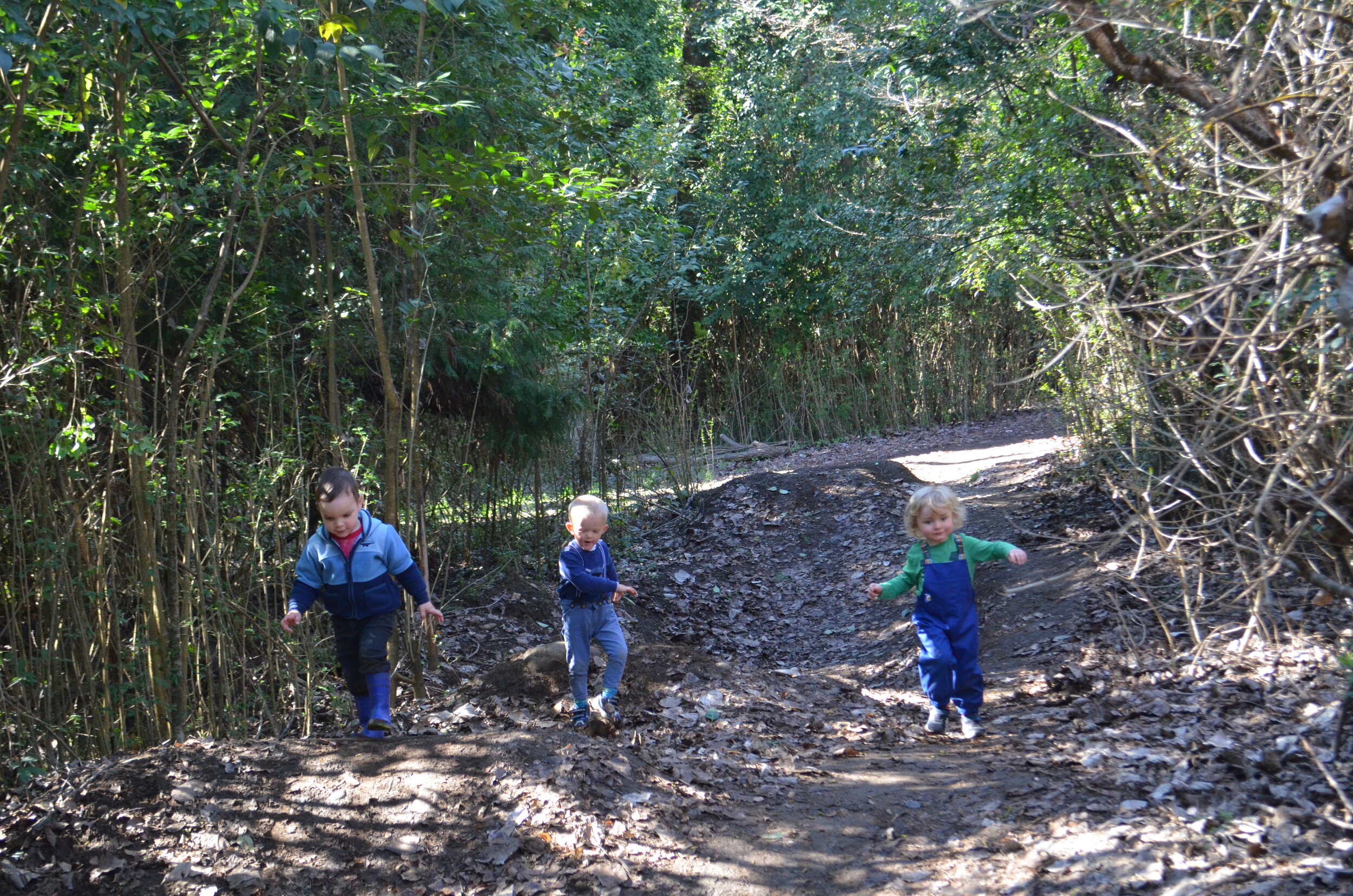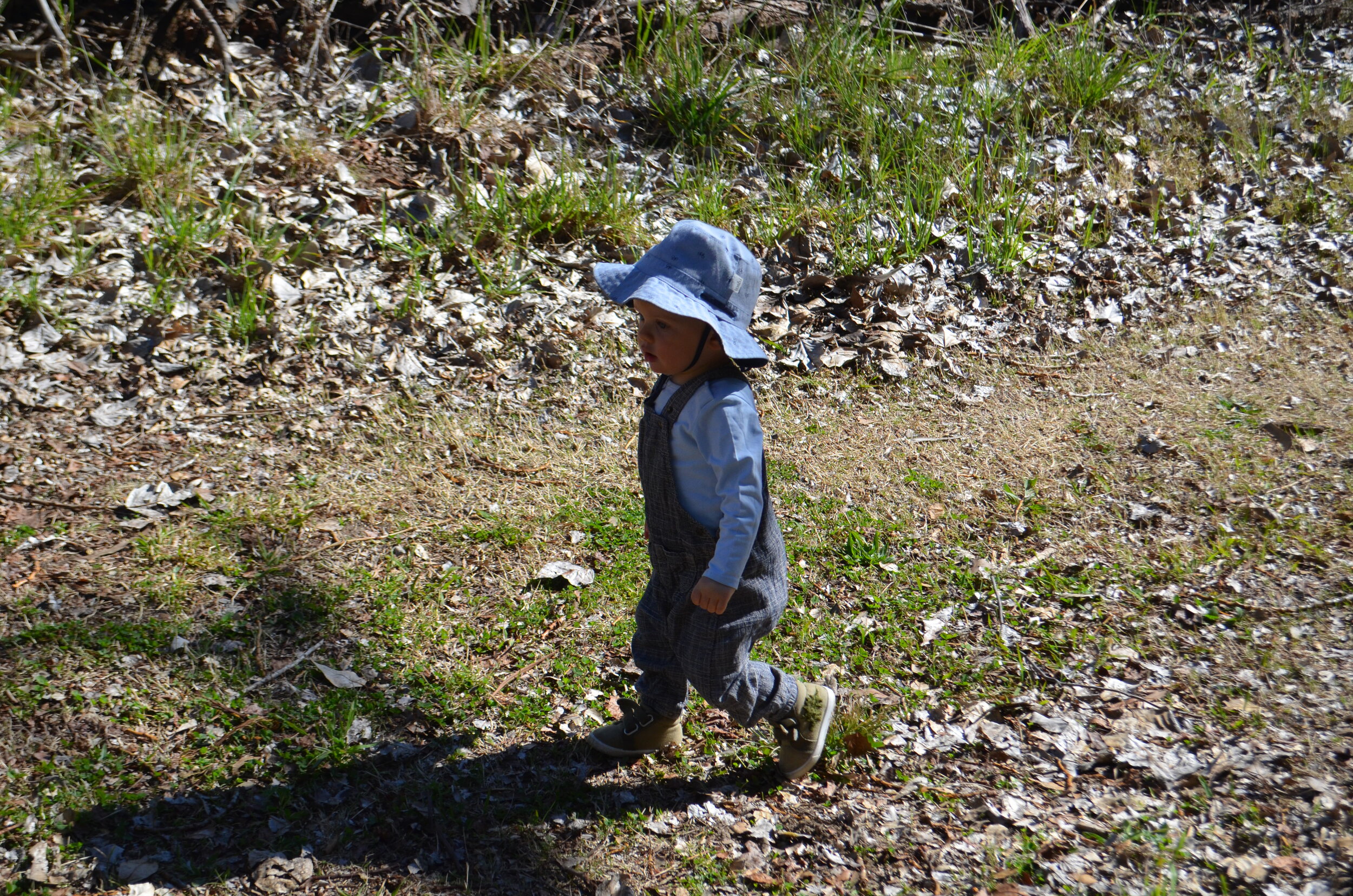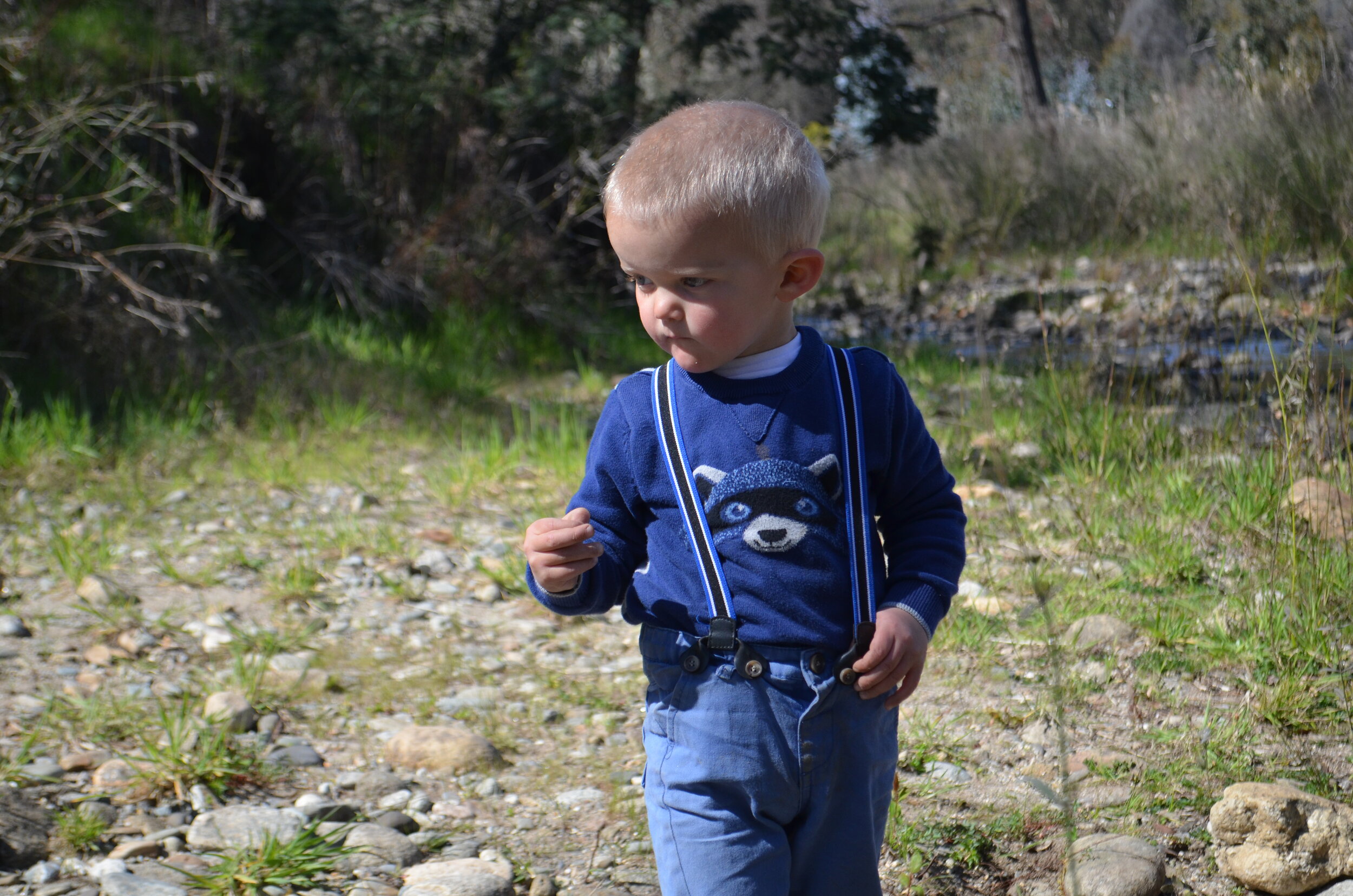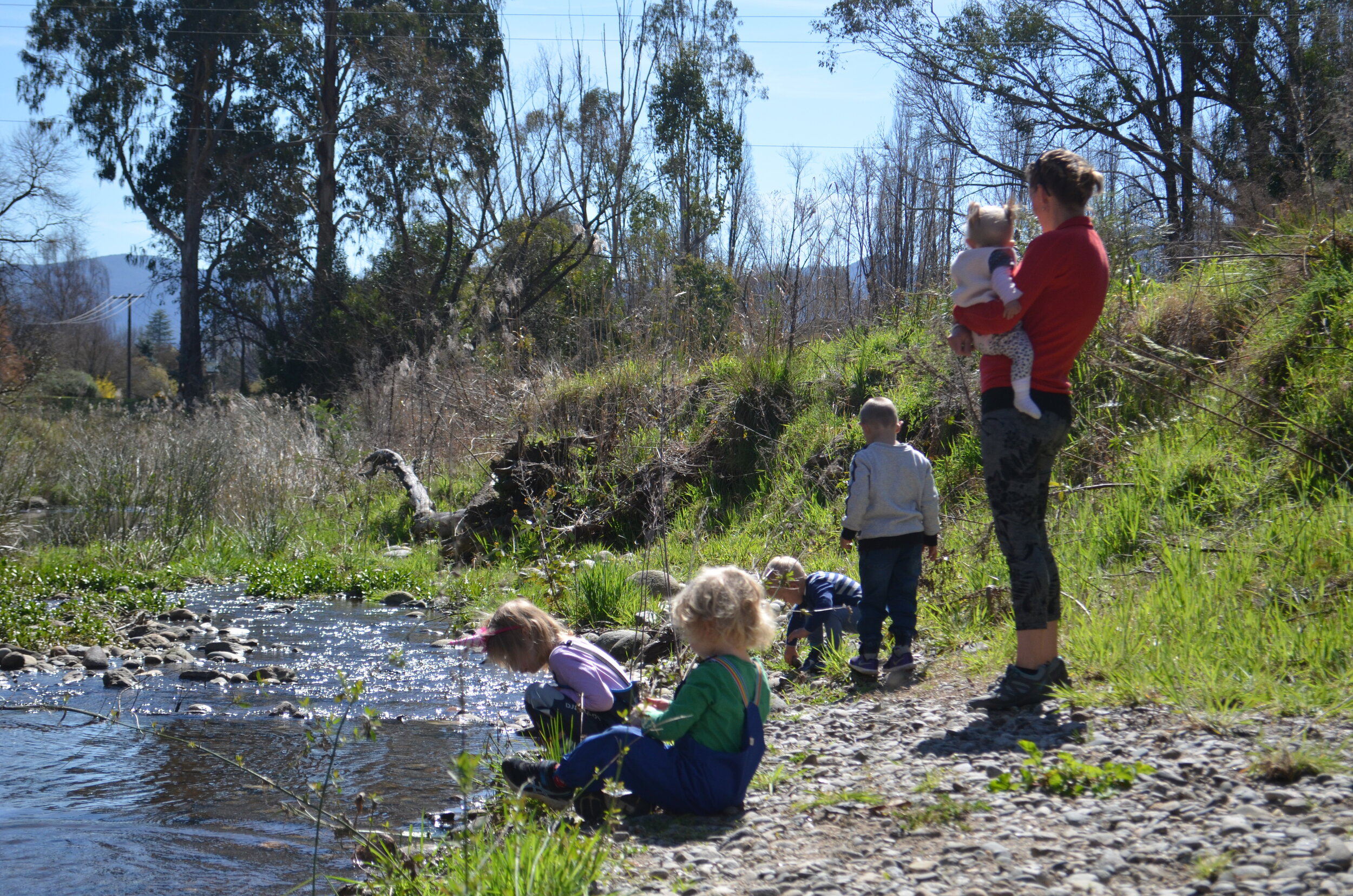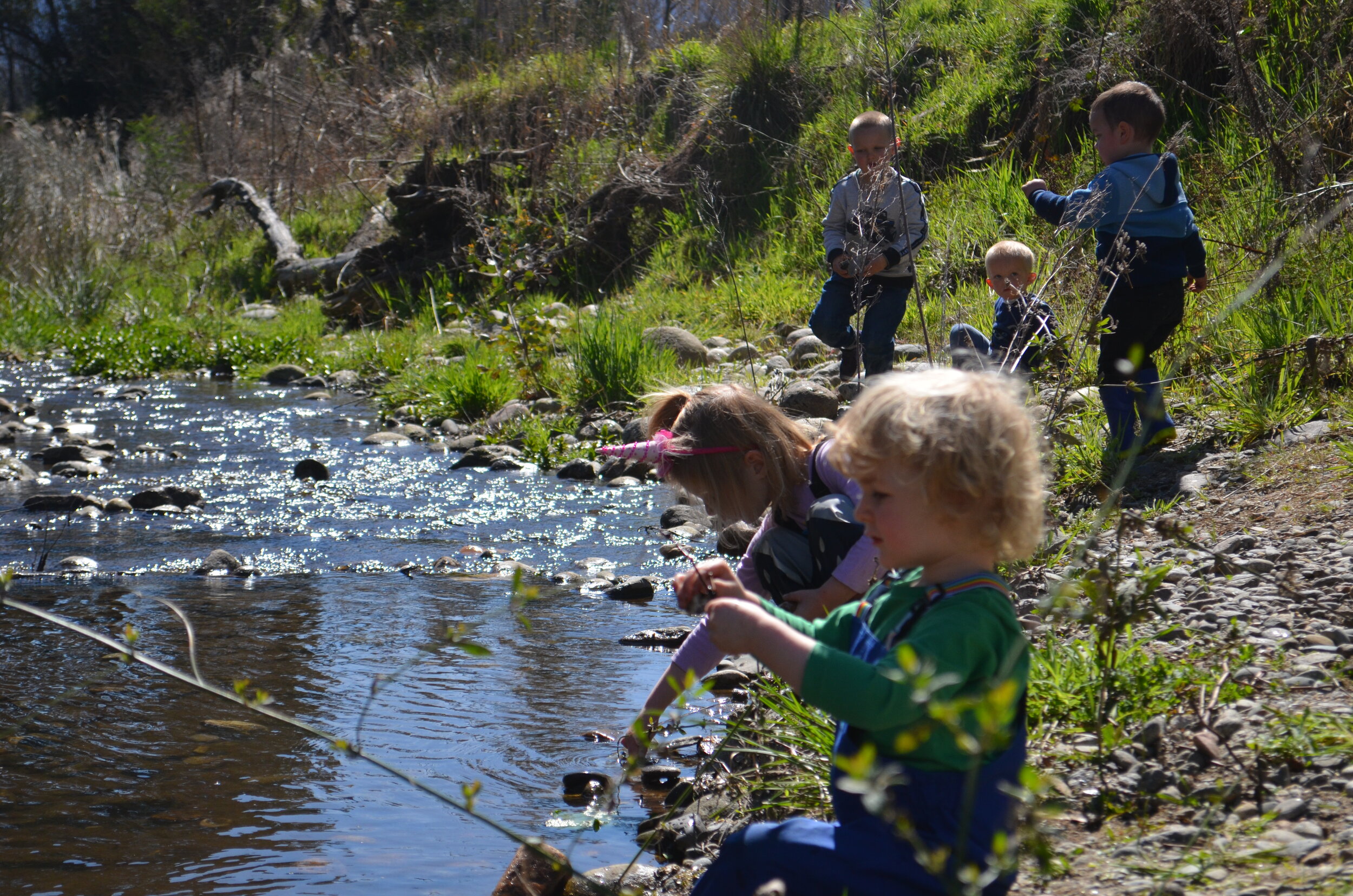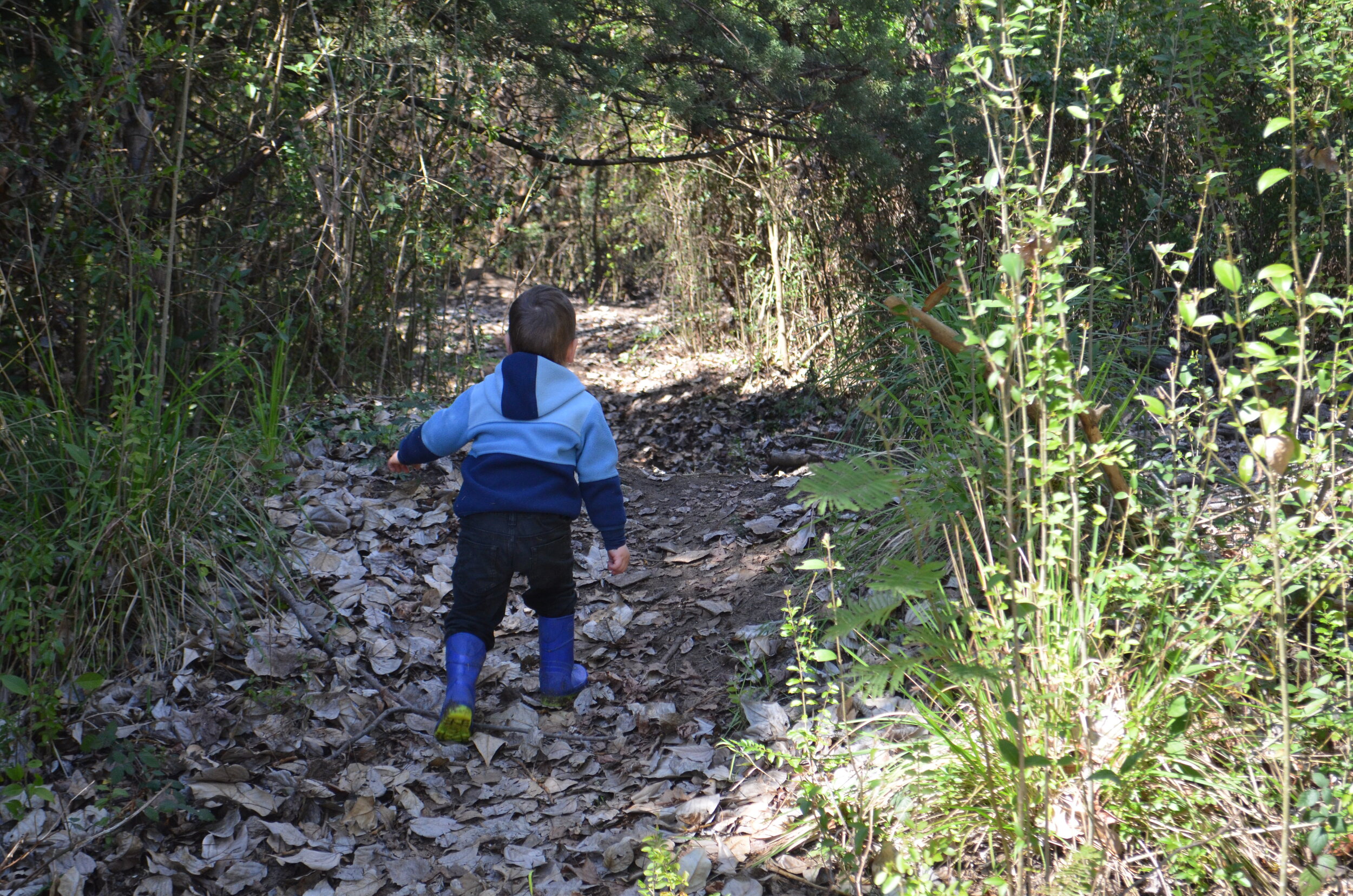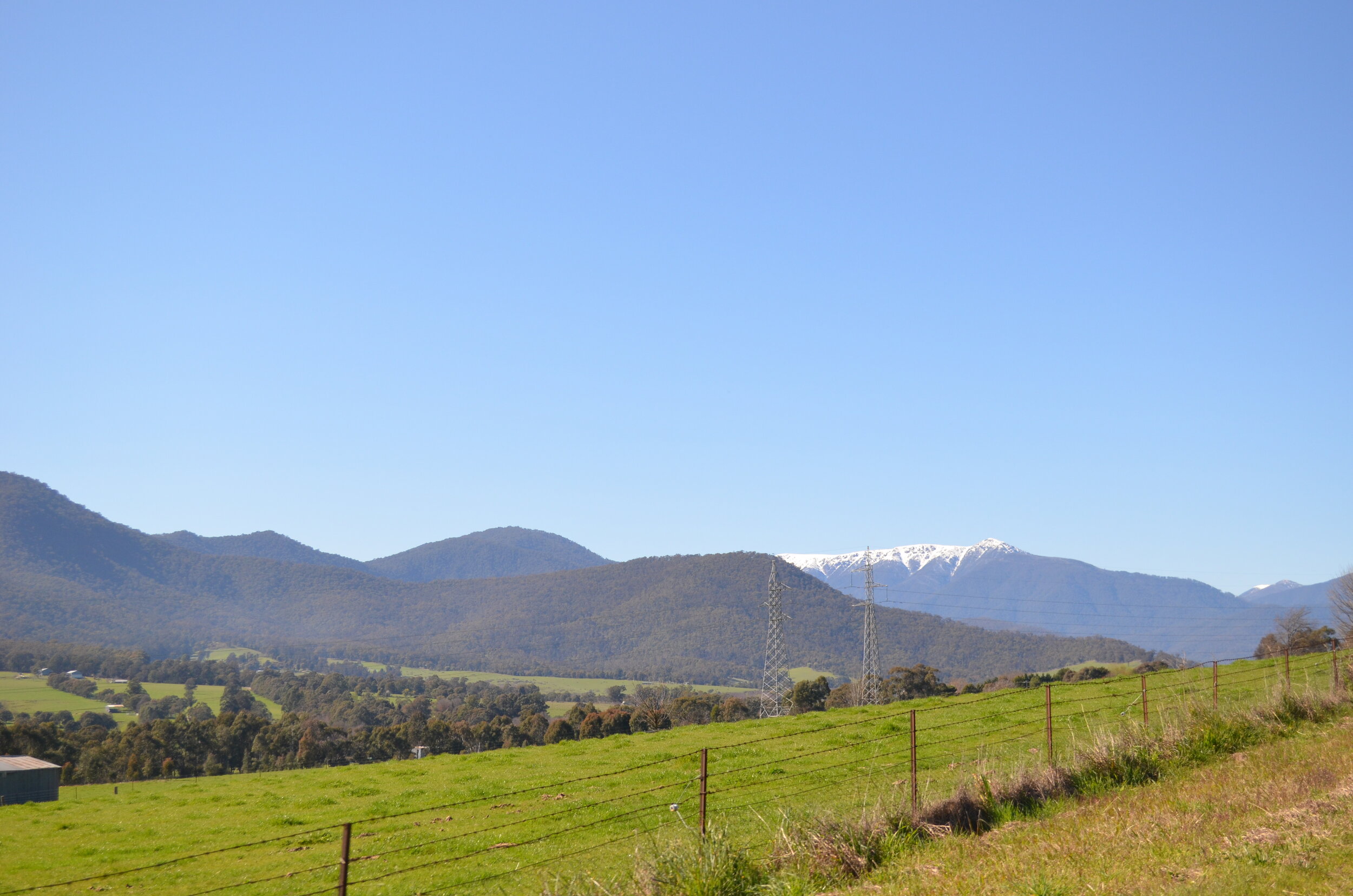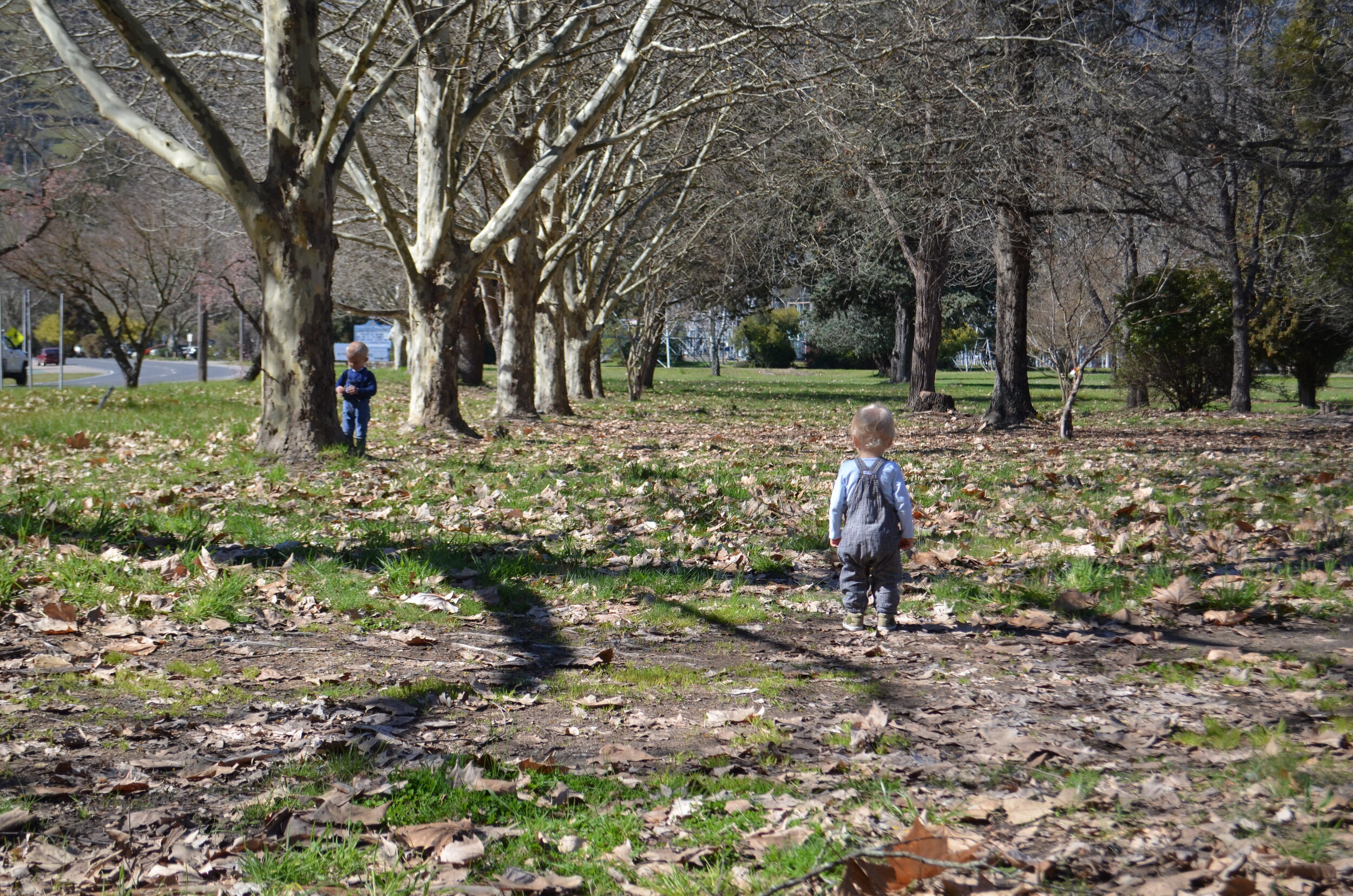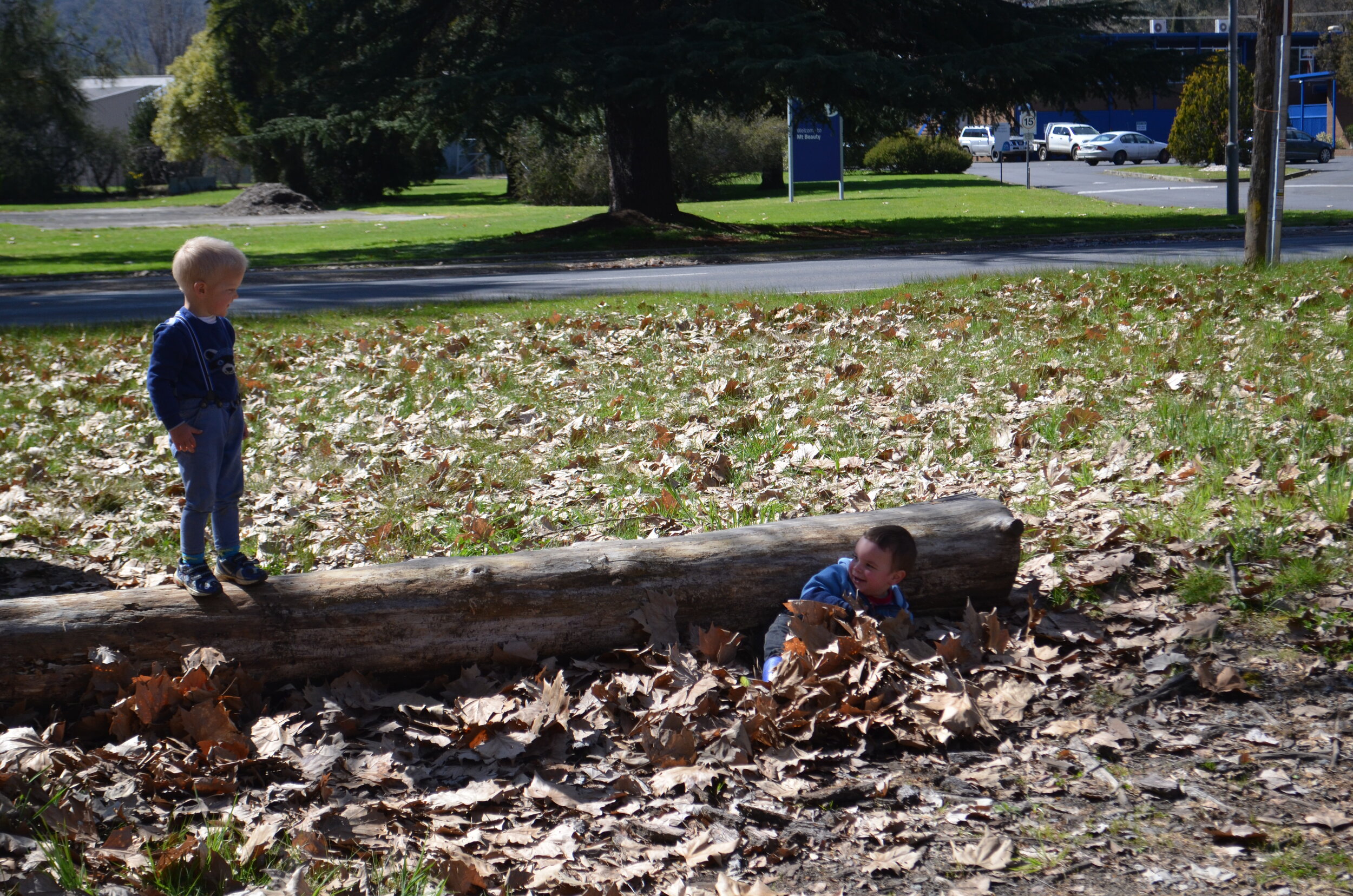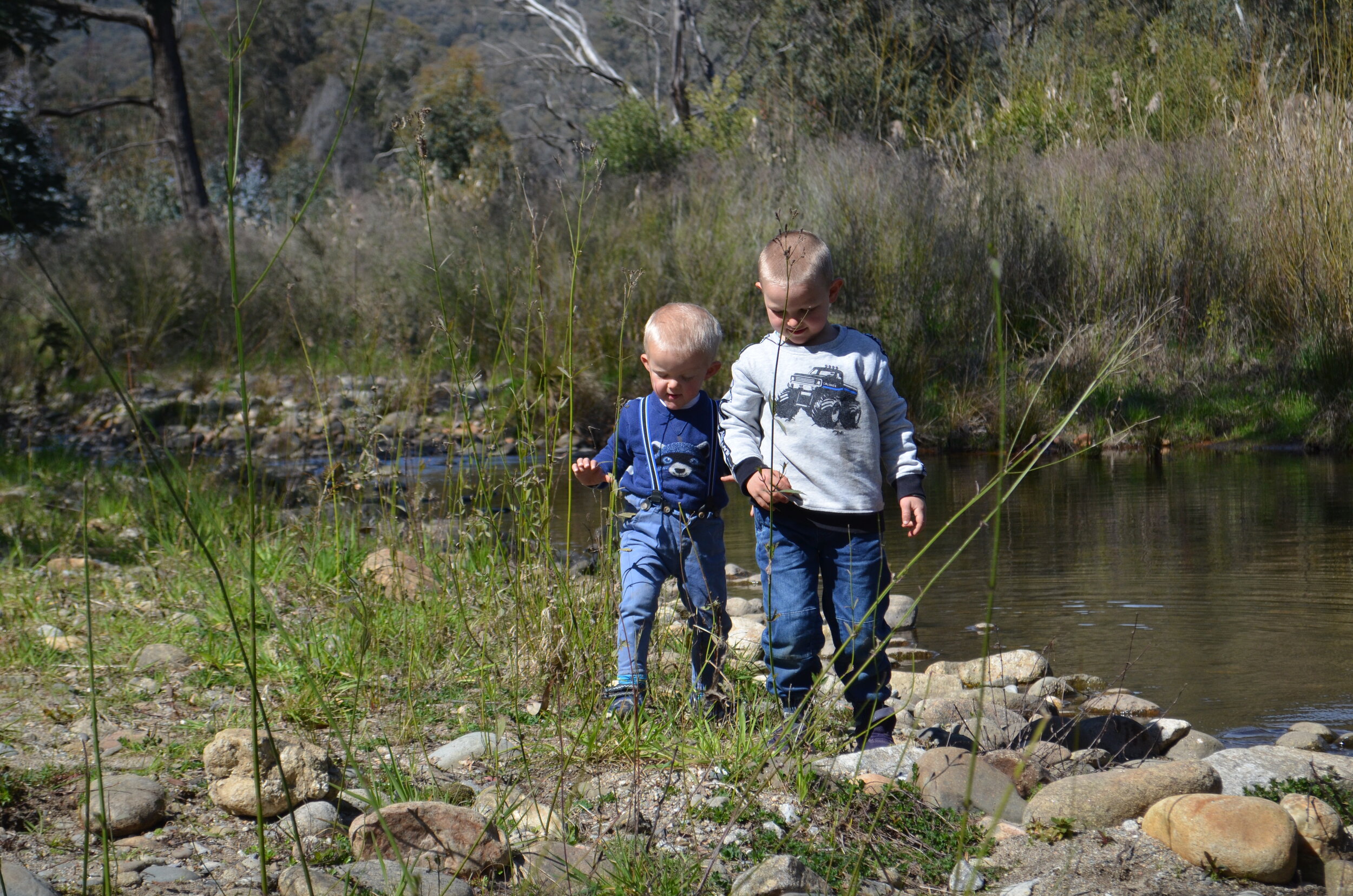Wild Things Bush Playgroup
Rounding the corner onto the Kiewa Valley Highway on this blue-skied day is like entering a grand landscape portrait. Things are still. There’s barely a wisp of cloud in the sky. The sun is shining cheerily. Dewy green pastures line either side of the road. Dairy cows munch in a relaxed fashion in the distance. The mountains in the background carry snow like hats. It’s an idyllic part of Victoria. For a lot of the parents, the lifestyle here with young children, is hard to beat.
Throughout the morning, the children, ages ranging from baby to five-years-old, are content. Pottering. Playing. Exploring. Testing the boundaries. Some of the boys stay side by side, picking up rocks and tossing them, enjoying the splash as they launch into the icy stream. One little girl sits happily in the dirt, sifting sand and dirt through her hands. Others are involved in pretend play, forming characters and scenarios. Rich learning ensues at Wild Things bush playgroup.
The innate curiosity that the children have at this age guides them to unearth various forms of meaning. Their brain, their emotions, their physicality and psychology are busy developing in the outdoor environment.
The children are not paying too much attention to the chatter of the adults and this is a good thing for they are immersed in their play. They balance on a fallen log, jump through the crunchy fallen autumn leaves, inspect the little bugs and details on the trees and through the grass. They enjoy the cause and effect of ripples and splashes in the water as they move through the shallows, tracing their hands along the surface.
“It’s the people and our connection with the environment that is the vital ingredient to kids’ positive relationships,” said Wild Things Founder Jarrod Paine.
“Kids will connect with the corner park in a suburban area if taken there and shown how to experience it, so therefore in our brilliant valley we are just the corner park multiplied by one thousand.”
While here, the pressure is taken off, for parents and children. The kids have freedom. They can get dirty and wander. Their language skills develop as they find words to describe and explain. They hanker to forge connections and out here in the fresh air, that is what they do.
Jarrod is pleased with the participation of local families.
“I am very proud of the growth of Wild Things across the Kiewa and Ovens Valley and more and more families becoming involved. New leaders stepping up and more muddy kids and nature interactions all piled on to essential relationship building for parents and their children with other families.”
As is often the case, the deceptively simple things prove most valuable and you see it here- nature, family, connection. These are things that humans, especially little humans, need.
“I love the absence, of stuff,” said Stephanie Sanders who is today leading the Wild Things group down to the river.
“I love it.”
The atmosphere here for young children is one of comfort. For the parents, too. Steph said that she can literally watch her daughter walk to school, everything is so close.
“One day a boy came off his bike and before I could even do anything there was someone there to help and a car also pulled over.”
Many parents in the area work in Albury or Wodonga, which is around an hour’s drive away. For people living out here that seems a trek, but anyone who appreciates the changing scenery would find solace in the surroundings. The seasons here are distinct and ever slowly transforming.
“We are lucky to have all of the four European seasons in their full force, plus two to three more native applications,” said Jarrod.
“The mountains are calming, all vistas include forest and mountains in all directions and we are provided with plenty of fresh clean rivers to explore also.”
“The kids get a lot out of it,” said Roslyn, a regular Wild Things attendee.
“It is nice to mix up the environments, too. We come here, there’s the river, every now and then they organise a farm visit or something like that. There’s a big mountain bike park where they have some gnomes and things hidden.”
Part of Jarrod’s philosophy supports the ongoing immersion in nature, with an enthusiastic guide.
“For children to learn the language of nature they need multiple immersions and with trusted elders and guides. Not a national park trip once a year, but weekly, indeed daily opportunities.”
“The great bit is that I champion the approach for little adventures for little people. The local corner park is great for toddlers and pre-schoolers for daily and weekly visits and in Australia we are never far from these public spaces. Multi visits to these places help kids learn the language of slippery logs, the crunch of dry leaves under foot, the shady shelter under a mature gum tree on a hot day.”
What’s interesting is the way the outside world has the power to calm. The general consensus is that it can be hard to get the kids out of the house, or work impedes, or there’s too much to do or it’s all too hard to get to playgroup- but once there, once walking along outside, it is well worth it. This small window of time together, in the great outdoors, relaxes and rejuvenates. Compared to the big trees and the big mountains that surround, perspectives change.
Most profoundly, there is a change in the children. Roslyn sees a change in her daughter, Matilda.
“Even the kinder teachers notice a change in her. They do a bush play with Jarrod once or twice a term. The first time Matilda did bush play with the kinder, they were like, ‘Who is this kid? We don’t even recognise her.’ She has blossomed.”
“She has always enjoyed being outdoors and I think sometimes you don’t necessarily take the opportunities around you when life’s busy to go and utilise these little nooks and crannies that you can find- whereas, if it is something structured, you go and oh, okay, I’ll turn up to that.”
Matilda, like many other children beside her, feel confident to come out of their shell in the outside world.
“Matilda is a different kid at bush play, in comparison to the structured environment.”
“This is a really nice time each week where she can go nuts and she loves being outdoors, which is good.”
Wild Things gives children the opportunity to reconnect with the wild, natural world. As the modern aspects of our lives evolve and increasingly shift away from ways of old, it becomes clear that this- the freedom; the room to run, to skip, to listen, to feel, inspect and think, wonder- cannot be replaced. It is human and human nature. The two are not separate entities but are forever linked. A childhood with doses of wild nature serve us well during the critical early years of development and hold us in good stead as we inevitably move ahead.
Jarrod has developed a Wild Things BushPlay Set-Up Guide to encourage more contact with the outside world.
“Nature connection is free, but it is the duty of parents and carers to give their children access, and regular access at that, to natural spaces.”
Article and photography by Sinead Halliday
Login to Your Member portal to find the Wild Things Bush Play Set-Up Guide
Jarrod has written a book, There are Snakes In Summer and it’s okay!
‘There are Snakes in Summer’ takes readers into the bush with a competent and curious mother and daughter to explore the wonders of nature. They encounter their environment with awe and excitement, sharing their knowledge along the way. The young protagonist is a great role model to all who recreate outdoors and she teaches us through her experiences not to be afraid, how to enjoy nature respectfully and that it is more than OK to see snakes in summer.
Discover more about Jarrod’s new book here


